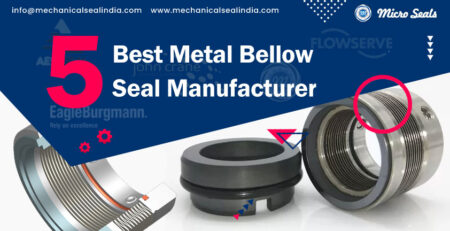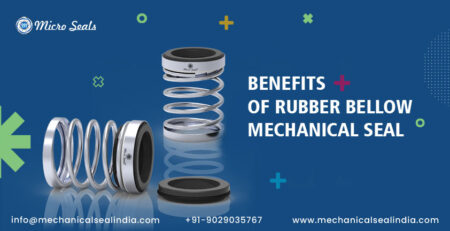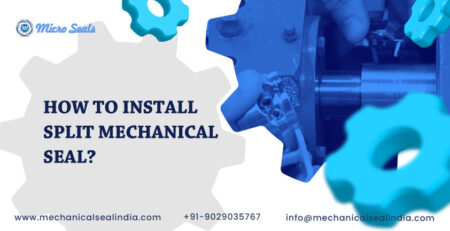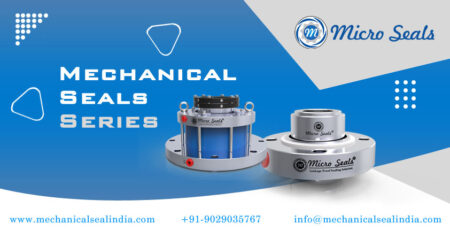The Importance of Multi Spring Mechanical Seals in Industrial Pump
At Micro Seals, we understand how crucial mechanical seals are for industrial Pump. These components stop fluid leakage and help maintain system efficiency. Their importance spans multiple industries, making them essential for smooth operations.
As leading mechanical seal suppliers, we’ve seen how multi spring mechanical seals have enhanced sealing technology. These seals offer better performance and are more reliable, especially in challenging industrial environments.
Why Multi Spring Mechanical Seals Stand Out
In this guide, we’ll break down everything you need to know about multi spring mechanical seals:
- Types and Applications: Learn about the different types of these seals and where they are most effective.
- Key Design Features: Discover what makes these seals unique and why they outperform traditional options.
- Selection Tips: Find out what factors to consider when choosing the right seal for your system.
- Maintenance & Troubleshooting: Get practical advice on keeping these seals in top condition and solving common issues.
By the end of this review, you’ll have a clear understanding of why multi spring mechanical seals are so important in modern industrial processes.
What are Multi Spring Mechanical Seals?
At Micro Seals, we specialize in multi spring mechanical seals, which are essential components in various industrial applications. These seals are unbalanced, single-acting devices designed to prevent fluid leakage in rotating. They’re inside mounted and work independently of rotation direction, making them versatile for different.
Multi spring seals use multiple springs to distribute force evenly across the seal faces, which increases their lifespan. This design allows for a shorter seal working length compared to single spring models, and they experience minimal distortion at high speeds.
We’ve found that these seals excel in processing corrosive liquids and are widely used for clean media applications. Their PTFE wedge construction makes them suitable for universal services, while the snap ring design facilitates easy installation and removal.
Types of Multi Spring Mechanical Seals
At Micro Seals, we offer a variety of multi spring mechanical seals to meet diverse industrial needs. Our range includes balanced and unbalanced seals, each with unique features and applications.
Balanced seals are designed for high-pressure applications, providing optimal face loading and reduced heat generation. These seals are ideal for handling poor lubricity fluids and light hydrocarbons. They offer extended seal life and improved energy efficiency.
Unbalanced seals, on the other hand, are more stable and can handle high capacities of high-lubricity fluids. However, they generate more heat across the face, which can lead to shorter seal life in certain applications.
We also manufacture capsulated spring seals, which are highly durable and resistant to abrasion. These seals are particularly useful in industries dealing with dirty, abrasive, and solids-containing media, such as raw sludge pumps and sugar industry pumps.
Applications and Industries
At Micro Seals, we’ve seen multi spring mechanical seals used across various industries. These seals excel in processing corrosive liquids and are widely used for clean media applications. They’re particularly effective in chemical plants, pulp and paper industries, purification plants, breweries, and petrochemical industries.
We’ve found that multi spring seals are crucial in the oil, gas, and petroleum industry, where they handle high pressures, speeds, and temperatures. They’re also essential in food and beverage processing, where they maintain product purity and adhere to international HACCP standards.
In the chemical industry, these seals withstand challenging duties, thanks to their phenolic resin impregnated Carbon materials. They’re also used in refrigeration, marine, and semiconductor industries, showcasing their versatility and reliability across diverse applications.
Design Features of Multi Spring Mechanical Seals
At Micro Seals, we’ve seen how multi spring mechanical seals have revolutionized sealing technology. These seals are unbalanced and single-acting, designed to handle various clean media applications. Their key feature is the use of multiple springs, which distribute force evenly across the seal faces, increasing lifespan and allowing for a shorter seal working length.
We’ve found that these seals excel in challenging industrial duties, particularly in the chemical industry. They’re made with high-quality materials, including phenolic resin impregnated Carbon, to ensure unmatched performance. The face materials typically include ceramic, tungsten carbide, and carbon, while secondary seal parts can be elastomers or PTFE.
One of the standout features is the PTFE wedge construction of the secondary sealing member, making these seals suitable for universal services. This design, along with the multiple spring arrangement, results in consistently even closing face pressure, ensuring optimal sealing performance.
Selection Criteria for Multi Spring Seals
At Micro Seals, we understand that choosing the right multi spring mechanical seal is crucial for optimal performance. We consider several factors when helping our clients select the best seal for their needs. These include application requirements, seal design, material selection, and seal configuration.
For application requirements, we look at the type of fluid, operational pressure, temperature, and chemical compatibility. Our multi spring seals can handle a wide range of fluids, including those with abrasive particles.
In terms of seal design, multi spring seals offer better face alignment and can accommodate larger shaft displacements compared to single spring designs. This makes them ideal for applications where shaft alignment may vary.
Material selection is critical for both sealing faces and secondary components. We offer options like carbon, ceramic, silicon carbide, and tungsten carbide, which provide excellent wear resistance.
Lastly, we consider seal configuration. For higher pressure systems, we often recommend balanced seals as they handle hydraulic loads better. Our seals can withstand pressures up to 10 bar and temperatures between -20 to 220 degrees Celsius.
Maintenance and Troubleshooting
At Micro Seals, we understand the importance of proper maintenance and troubleshooting for multi spring mechanical seals. Regular maintenance is crucial to prevent leakage and ensure optimal performance. We recommend implementing a routine inspection schedule to check for signs of wear, such as grooves or chips on the seal faces. It’s essential to maintain proper lubrication, as dry runs can cause significant damage to the seal. We suggest installing a Dry Run Monitor to alert users when there’s insufficient fluid in the system.
Excessive vibration can lead to seal deterioration, so it’s crucial to operate your pump within its Best Efficiency Point (BEP). If you notice leakage, it’s often a symptom of a worn seal face, but it can also indicate more serious issues like bad bearings or a bent shaft. In such cases, we recommend consulting with our experts for a thorough assessment and appropriate solutions.
Multi spring mechanical seals have proven to be game-changers in various industrial applications. Their unique design, featuring multiple springs for even force distribution, has led to improved performance and longer lifespans in challenging environments. From chemical plants to food processing facilities, these seals have shown their worth in handling corrosive liquids, high pressures, and extreme temperatures.
To wrap up, the versatility and reliability of multi spring mechanical seals make them a top choice for industries looking to boost their operational efficiency. Their ability to adapt to different rotational directions, combined with easy installation and maintenance, sets them apart from traditional sealing solutions. As technology advances, we can expect these seals to play an even bigger role in shaping the future of industrial sealing systems.
FAQ
Mechanical seals generally have a minimum lifespan of two years, although certain types, like those compliant with Standard API 682, can last up to three years when operated within specified limits.
Mechanical seal failures often occur due to improper installation, which may involve incorrect alignment, inappropriate seal size, or inadequate lubrication. Additionally, contamination from dirt, debris, or other foreign materials can damage the seals.
P-80 lubricants are highly recommended for mechanical seal applications. These lubricants facilitate the easy installation of rubber components such as seals, O-rings, hoses, grommets, and plugs by reducing the force needed to fit these parts into place.
Tungsten and silicon carbide are preferred materials for mechanical seal faces due to their excellent wear resistance and reliability. Although they are more costly than pure metallic or oxide ceramic types, their durability typically ensures a longer service life.
To Know More about mechanical seal supplier Read Our Blog Post on top mechanical seal supplier For More mechanical seal services Information, Check out our Mechanical Seals Repair Page.
Microseals Is ISO 9001:2015 Certified Company and Leading Mechanical Seals Manufacturer & Supplier In India, Providing Leakages Solutions To All Types Of Pump Applications By Manufacturing Mechanical Seals And Sealing Components As Per Customer’s Require, Samples or Need. To Know More About Mechanical Seal Call On +91 – 9029035767 Or Email At [email protected]







